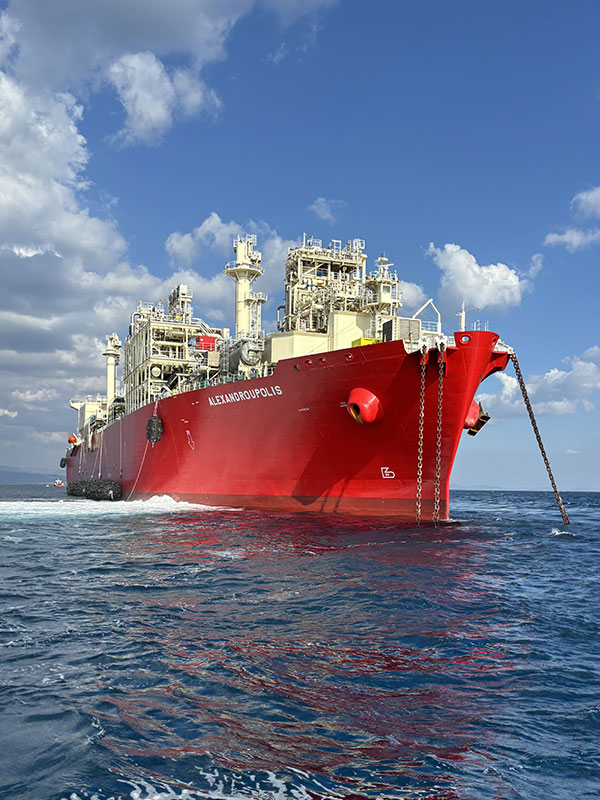As published in

Greece is rapidly emerging as a cornerstone of Europe’s economic, innovation and sustainability ecosystems. In 2024, the government posted a budget surplus of 1.3% of GDP, while public debt has begun to decline. The country has strategically deployed support from the EU’s Recovery and Resilience Fund, at the same time embarking on a comprehensive programme of institutional reforms, especially in taxation and public revenue collection, designed to consolidate gains. Demonstrating its forward momentum, Greece is also taking the lead in the green transition, reducing its reliance on fossil fuels, modernising infrastructure and digitalising public services; the government’s national plan allocates 38% of its budget to climate-related goals.
Combined, these developments position Greece as a stable, credible gateway for investors seeking strong EU integration and a dynamic, reform-focused economy – with a supportive policy agenda and growing opportunities in sustainability, technology and infrastructure. Speaking at the Delphi Economic Forum earlier this year, Prime Minister Kyriakos Mitsotakis reaffirmed his vision for Greece’s future: “We sit at the crossroads of the new geopolitical realignment, the new trade routes, the new energy routes,” he said. “I have put investment at the centre of our growth strategy.”


Greece’s government is committed to creating an investor-friendly business environment through structural and policy reform.
Greece is entering a new era as a rising destination for business investment. The statistics are impressive. From 2019 to 2025, the country reduced its public debt-to-GDP ratio by 55 percentage points, with forecasts projecting a further 20-point reduction by 2028. Over the same period, investment levels increased by 64%: in 2024 alone, foreign direct investment rose by 41%. Here, Deputy Prime Minister Kostis Hatzidakis outlines his vision for nurturing growth.

Q: What is your strategy for long-term growth?
Greece is changing and recovering. To achieve this, we implemented proven European and international practices. Specifically, we combined fiscal discipline with a business-friendly approach, and it worked. Our goal is to continue along the same path, linking this economic strategy with political stability.
Q: What are the government’s key policies?
We will focus on specific areas: spatial planning, enhancing competition, improving productivity and cutting red tape for businesses. The goal is to show that Greece is not only business-friendly but one of the most welcoming environments for business in the EU.
Q: What opportunities for investment would you highlight?
We aim to make Greece more attractive to investors and tourists, while also enhancing competitiveness to boost exports, including to Germany. Greece has competitive advantages in sectors such as pharmaceuticals, agri-food and aquaculture.

Q: How are you planning to support investors?
So far, measures include simplifying business licensing, adopting outsourcing for licensing procedures and implementing bold labour reforms – protecting workers’ rights while meeting business needs without bureaucracy.
Q: What is your agenda for reform?
We are proud to have implemented a policy that combines fiscal prudence with a pro-business approach, while addressing structural imbalances in the economy, including tax evasion. We are working not only to stabilise the economy and create conditions for growth but also to tackle deep-rooted structural issues.
Portugal is on the rise. Socially, culturally and economically, this warm and welcoming nation is thriving, attracting increasing numbers of investors seeking growth opportunities in a stable political and financial climate.
Strategically located on Europe’s westernmost edge, Portugal offers an enviable lifestyle with stunning landscapes, vibrant cities, a rich culinary scene and easy access to neighbouring EU countries. Businesses based here benefit from relatively low operational costs, an attractive tax regime and—in common with fellow Mediterranean economy Greece—a sought-after “Golden Visa” programme, which has proved popular with foreign investors, digital nomads and high-net-worth individuals. al companies if they want to spend on R&D.” The 500 Global accelerator programme for EECCA startups, delivered in collaboration with the Bank of Georgia, has also just rolled out its latest application phase. “500 Global’s presence in Georgia shows there are worthwhile investment opportunities here,” Kasradze adds.

In recent years, the country’s economy has demonstrated robust growth, with foreign direct investment (FDI) surging. Bank of Portugal figures show FDI transactions reached €13.2 billion in 2024—an increase of almost 19% year-on-year. The government keenly supports FDI via incentives and simplified processes, providing a streamlined approach for potential investors.
Key sectors—including real estate—are seeing a significant uptick in investment, especially in urban areas. Meanwhile, Portugal’s technology and startup ecosystem is transforming Lisbon into a tech hub, attracting talent and investment from across the globe.

“Portugal has changed, with significant progress in sectors such as technology, automotive, quality tourism and renewable energy. Diversification has been key to this transformation. Moreover, the new generation of entrepreneurs is betting on digitalisation, sustainability and differentiation as the keys to greater competitiveness in the global market. The country has adapted to new times and succeeded in attracting foreign investment in high-value sectors.”